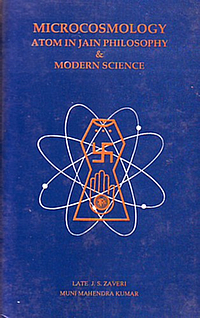 | About: |
| Where did the universe come from and where is it going? Did it have a beginning? How and why did it begin? What happened before that? Will it come to an end, or not? Did anybody create the universe? Is it static and unchanging or dynamic and mutable?
These and many other questions regarding space, time, animate and inanimate orders of existence have been before mankind ever since man became capable of thinking. Theories about the origin of universe and its contents have been put forward by theologises, met physicists, philosophers as well as modern scientists. In the orient, philosophers mostly dealt with such questions.
The enigma of the physical universe has also been pondered alike by religion (theology), philosophy, and science. The fundamental problems, no doubt, remained the same from one age to another, but the point of view from which they were attacked varied with the viewer as well as the age. It would, therefore, be not surprising if the answers to the problems are found to be radically divergent. Answers given by theology, for instance, are based mostly on dogmatic belief that we have knowledge, where, in fact, we have ignorance. Science, on the other hand, cannot answer many questions of great interest raised by the inquisitive human mind. "Philosophy is intermediate between theology and science" says Sir Bertrand Russell, "and it is the business of philosophy to study such problems in order that we do not become insensitive to many things of great value."
India's philosophical culture is characterised by a sincerity of purpose and seriousness of outlook as well as freedom of thought which was unknown in the western countries. State persecution and censorship of thought was conspicuous by its absence because Indians did not seek to make political capital out of their religious persuasion.
At the same time, unlike in the West, science has never been able to completely subjugate the religious sensitivities. In India, at least, mystery, ambiguity, and transcendence remain as important as rationality, logic and sensible perception. Here, man's personality is not entirely denatured by the scientific objectivity nor has mystery and sacredness been taken away by its rationality. In short, science, in spite of its spectacular achievements, did never become a new religion here as it in effect did in the West.
Systematisation of Jain philosophy is comparatively a recent event though it has its moorings in the canonical literature i.e. Agamas. According to Jain belief, the doctrines promulgated by Bhagavan Mahavira, whose 2500th Nirvana was celebrated 15 years ago, are even more ancient and were preached by a succession of 23 Tirthankaras thousands of years before him. The earliest Jain literature, though not extant, is much more ancient than Bhagavan Mahavira. Commentaries on Agamas and independent treatises by great savants between 8th to 12th centuries systematised and connected the divergent elements into logical doctrines remarkable for their originality, acuteness, and subtlety.
| |
| Authors: | J.S. Zaveri / Muni Mahendra Kumar |
| Publisher: | Jain Vishwa Bharati, Ladnun, India |
| Editor: | |
| Translator: | |
| Edition: | |
| Read online: | Microcosmology: Atom In Jain Philosophy & Modern Science |
| Bookshop: | Microcosmology: Atom In Jain Philosophy & Modern Science |
| Pages: | 246 |
| Dimensions: | 14.70 x 21.80 x 1.90 cm (W x H x D) |
| Weight: | 363 g |